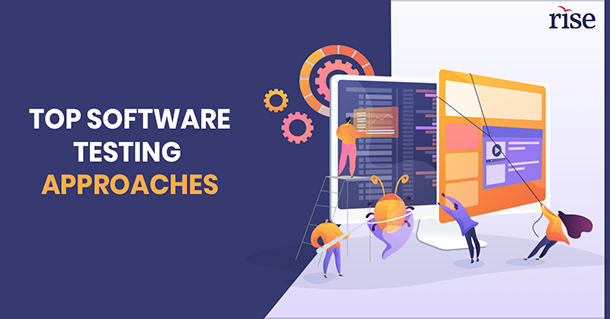

Technology is continually evolving and its effects are all around us. What might have sounded unthinkable a few years ago is already a necessity in our lives today. Similarly, the world of software development and testing is moving forward with a vision to innovate continually. It incorporates emerging technologies like artificial intelligence, machine learning, big data & more.
Whether it is browser compatibility testing or selenium test automation, or any other form of testing, each methodology is transforming to deliver better results. If you need to catch up on the emerging software testing trends, this article is for you. Give it a read,
1.Test Automation
A report by Markets and Markets suggests that the overall global automation testing market size is set to grow to $28.8 billion by 2024. The increase in adoption of DevOps and Agile is one of the key reasons driving automation testing growth.
Agile development, CI/CD implementation, continuous testing & DevOps are why software companies frequently code deployments and understand the goal of reliable software delivery. Test automation plays an essential role in each of these processes. It reduces the need for manual testing for repetitive tasks.
2.Testing Focused on Progressive Web Apps
Google introduced Progressive Web Apps that ushered in a new era of mobile app development. PWA does not require you to download and install the app on the phone. Instead, a web application that uses modern web capabilities delivers a web-like experience to users. Companies like Ali Express, Twitter and more trust PWA and have benefitted from better engagement and new conversions.
3.Artificial Intelligence and Machine Learning
Artificial Intelligence has found its place in every industry and everyone wants a piece of it. A report by Markets and Markets suggests that the market is expected to grow to &190 billion by 2025. AI is the future of automation testing and will play a huge role in data mining.
Additionally, AI and ML are a lethal combination that will benefit automation testing. The process of test automation will speed up, which includes cross-browser testing.
4.Shift Left Testing and Continuous Deployment
Large businesses and even startups are taking advantage of DevOps and shift-left testing to collect and incorporate feedback with every product release. Continuous Deployment (CD) uses selenium automation testing to check the codebase changes and enable stable release to the production environment. With shift-left testing, the QA works collaboratively with the development and product teams.
Organizations are aware of the potential that lies with DevOps and continuous deployment of product testing and delivery.
5.QAOps
Today’s environment is even more competitive than it ever was. That’s why software releases need to maintain top quality so that there is no delay at the customer’s end. The QA team is involved in testing and overlooks every stage of software development and intervention when required. DevOps plays a critical role in the automation process since every product or feature release is dependent on it.
6.Spidering AI
We already know how AI/ML can take automation testing to the next level. AI Spidering, however, takes AI in automation to a whole new level in the test script writing procedure. AI Spidering uses advanced ML algorithms to crawl the application while you are working on something else.
7.Mobile Test Automation
Globally, smartphone shipments are reaching mammoth growth. In 2019, we witnessed 380 million units in Q3. Also, mobile phones are growing in their performance and capabilities. It expects to generate a market value of $14 Billion by 2023. It makes mobile app testing all the more critical. That’s because apps need to be tested across devices and operating systems.
Automated testing for mobile apps is on the rise since it ensures shorter time-to-market and advanced tech for mobile test automation. Popular automation tools like Appium for mobile apps are used in the DevOps process.
8.Multi-Device Testing
The power of smartphones and the introduction of IoT devices makes multi-device testing even more important. Consumers now have access to almost the same information from smartphones, wearables, smart speakers, and other types of IoT and connected devices.
9.Selenium 4
When consumer products are involved, cross-browser testing plays a vital role in selenium automation testing. The products undergo a series of tests against web browsers, devices and operating systems. Selenium, which is an open-source web framework, is popularly used for automation testing. Thus, we’re confident that Selenium automation testing grows even more in the years to come.
10.Voice Assisted Technology
Voice assistants are not that big of a deal anymore. If you take a closer look at your social circle, everyone uses it in some form. It is either a family favorite or, for some, an on-the-move assistant.
Companies are now heavily investing in improving voice technology with aspects like personalization, noise cancellation, dialect and more taking center stage. Smart speakers use voice technology a lot more than mobile apps. The issues related to privacy and accuracy are a primary concern. Testing voice technology is a little tricky. The automation testing framework will have to include ‘voice’ in their way ahead.
Our experience and foresight tell us that these new trends in software testing pick up even more in the years to come. If these trends excite you and plan to pursue a career in the tech world, our software testing training course at LearnAtRISE is designed just for you. It will give you a more in-depth level understanding of systemic processes from industry experts.
We use cookies to deliver the best browsing experience as well as for analytics and marketing purposes. By continuing to browse this website, you accept the use of cookies. For more information, please visit our Privacy Policy